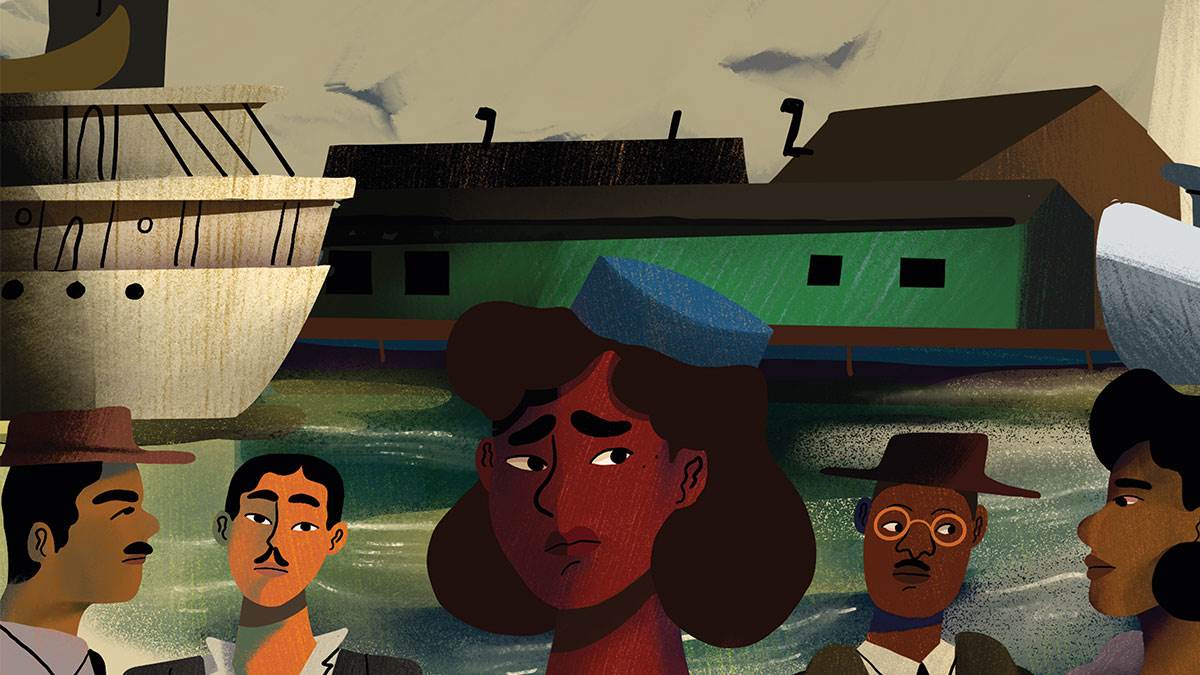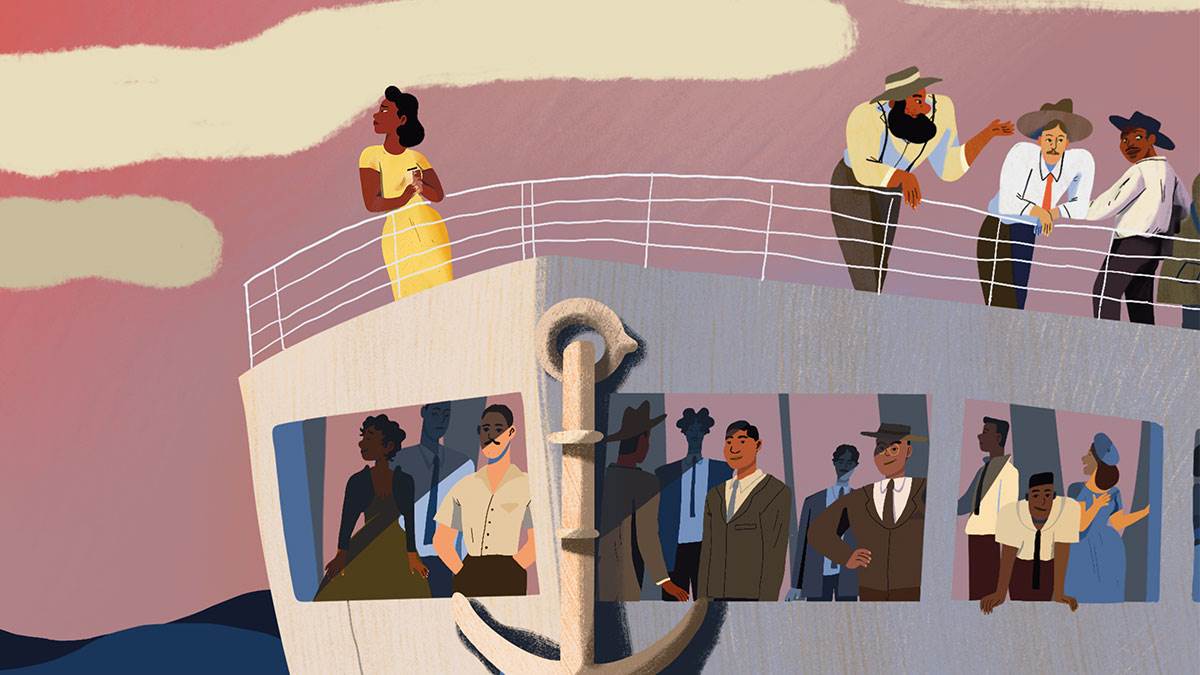Telling the stories of Windrush: 'It gave me a deeper understanding of my mother’s emotional journey'
Published on: 26 May 2022 Author: Patrice Lawrence
Author Patrice Lawrence is still exploring her heritage, even in adulthood, and that's why she's written about the Windrush generation: for herself and for every child, who needs to hear the stories of the generations that came before and shaped our country.

Illustration by Camilla Sucre from the book Granny Came Here on the Empire Windrush, written by Patrice Lawrence
This sounds like a strange confession, but I’ve never considered my parents to be part of the "Windrush generation". My mum sailed from Trinidad 16 or so years after the iconic ship, and has always lived in Sussex. Her love for the TV chef Keith Floyd, musician Gerry Rafferty, and queen of Regency novels, Georgette Heyer, seems at odds with the images that we often see of Caribbean elders. She has most certainly never been a church goer – I reckon she’s an atheist – and arrived at a time when you couldn’t get garlic in Brighton, let alone a mango. Ours was not, in any way, a typical Caribbean household.
So why have I written a story, so beautifully illustrated by Camilla Sucre, about a fictional passenger arriving in England on the SS Empire Windrush?
For many reasons.
'I saw little of myself in books'
Firstly, as a British-born person of Caribbean heritage, I am still exploring my own heritage. I saw little of myself in books when I was growing up, but I do remember one powerful moment when I was at primary school. We were watching one of the BBC’s schools programme. It must have been about the Caribbean because it mentioned Anansi the Spiderman and "paime", a traditional sweet cornmeal pie that is steamed in banana leaves. I knew nothing of these delights and was quick to tell my mum when I went home. In a world where racism was often explicit and wounding, her joy at this positive representation was tangible.
Now, as an adult, I am still exploring different elements of my Trinidadian heritage, including those long journeys that people made across the Atlantic to England, leaving everything they knew behind. As I researched Granny’s story, it gave me a deeper understanding of my mother’s emotional journey.
'I always want more women's stories'
This brings me on to a second reason. I love The Lonely Londoners, Sam Selvon’s lyrical novel charting the lives of the Caribbean and African diaspora in 1940s London. However – it’s all about men. The images we often see of the passengers disembarking from the Empire Windrush are men. I always want more women’s stories! I was originally inspired by the musician Mona Baptiste, who also travelled on the boat, but as I redrafted the story, I knew that it wasn’t Mona’s story that I wanted to tell.
 Illustration by Camilla Sucre from Granny Came Here on the Empire Windrush, written by Patrice Lawrence
Illustration by Camilla Sucre from Granny Came Here on the Empire Windrush, written by Patrice Lawrence
The third reason I wanted to write this book was to celebrate intergenerational storytelling.
My own grandmother was terrifying. She’d been the mother of 13 children and by the time I came along, had more grandchildren than she could count. I first met her in Trinidad when I was six and she declared that she couldn’t understand a word I said. My mum’s older sister, my Aunty Baby, was my substitute granny. She would write to me and send over presents of silver bracelets. She’s the one who answered my questions about her grandparents and kept tabs on my numerous cousins. It was only me and my mum in England, but Aunty made me feel that I belonged to this family that lived so far away.
Although Granny Came on the Empire Windrush is about a voyage from the Caribbean, I have written this story for every child. All of us have roots from around the country and across the world. All of us have people who care for us that have stories to tell.
You might also like...
Benjamin Zephaniah on Windrush Child: "We have to learn from the past"





